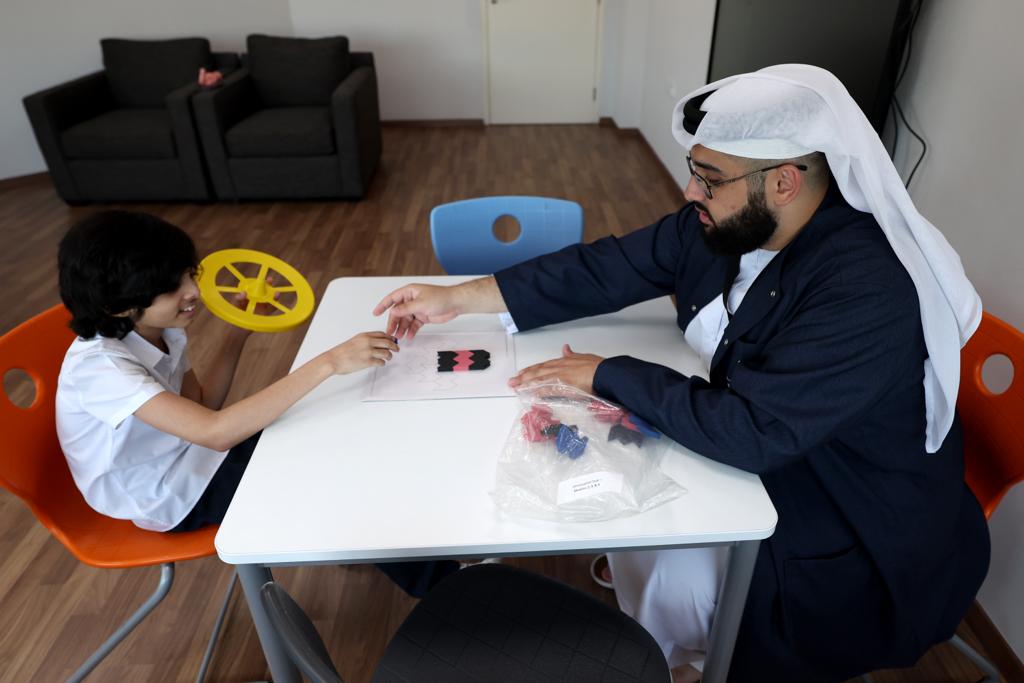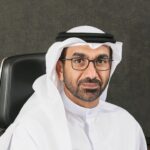
To bridge the gap between schools and early intervention services, the Dubai Autism Center announced the expansion of the scope of its citizen-oriented free clinical services to include comprehensive assessment sessions for neurodevelopmental disorders in addition to free initial consultations provided to all residents of the UAE throughout the year.
This came following the conclusion of the second cycle of the free comprehensive assessment initiative for the academic year 2023-2024, the implementation of which was approved annually last year to be part of the procedures for accepting students for the next academic year 2024-2025 in schools, early intervention centers, as well as centers for people of determination.

Hesham Abdulla Al Qassim, Chairman of the Dubai Autism Center, said: “After the success achieved by the free comprehensive assessment initiative since its launch in April 2022, the initiative was distinguished this year by more flexible and precise procedures thanks to the rise in community awareness and the support of government agencies, led by Emirates Schools Establishment and the Knowledge and Human Development Authority in Dubai, as we commend their efforts in facilitating and accelerating the procedures for holding evaluation sessions and reaching the target segment.”
Al Qassim conveyed the board’s appreciation to His Highness Sheikh Hamdan bin Mohammed bin Rashid Al Maktoum, Crown Prince of Dubai, for his commitment to supporting this cause through this initiative, which greatly contributed to encouraging Emirati families to speed up early detection of autism to ensure that their children receive the right comprehensive diagnostic assessment for required early intervention.

Mohammed Al Emadi, Director General of the Dubai Autism Center, said: “The importance of this initiative lies in the ideal opportunity it provides to obtain a proper and comprehensive diagnosis for cases that are suspected of having symptoms of autism spectrum disorder but fall within categories outside the spectrum, such as learning difficulties, attention-deficit hyperactivity disorder (ADHD), communication disorders, and movement disorders,”
“Unfortunately, the high cost of this type of assessment makes it difficult to access, further compounded by the limited number of specialized centers using the most up-to-date international diagnostic standards,” Al Emadi added.
Al-Emadi stressed the importance of integrating efforts between schools and early intervention services, warning against the phenomenon of misdiagnosis of autism spectrum disorder based on the symptoms recognized by some non-specialized caregivers, in light of the wrong beliefs and inaccurate concepts prevailing in society, where confusion is made between autism spectrum disorder and learning disability disorder, most often.
Al Emadi said: “In line with the National Autism Policy, the Dubai Autism Center continues to achieve its mission of overcoming the obstacles faced by people with autism and their families, especially in the early intervention phase, which is the most burdensome phase for them, financially and psychologically.”
Al Emadi extended his thanks and appreciation to the sponsors of the initiative in both its first and second cycles, praising Al Ansari Exchange’s sponsorship of the initiative this year and supporting its continuation as an annual initiative, after its success achieved in its first year under the sponsorship of Emirates NBD.
Detection and Assessment Procedures
Regarding the assessment procedures, Al Emadi said: “146 Emirati children have been received since the start of the second cycle of the campaign, where we communicated, at the beginning, with the parents of children suspected of having autism, especially those who have been registered in kindergartens and first-year schools, in order to schedule initial consultations to assess the child’s needs and determine if a comprehensive assessment is necessary,”
“The next step is a comprehensive assessment. This will involve a detailed look at the child’s behavior and how their development is progressing. Mental abilities are measured and diagnosed by clinical psychologists, behavioral disorders by certified applied behavior analysts, speech disorders by speech-language pathologists, and motor and functional disorders by occupational therapist. Once the assessments are complete, the team meets to review the findings and finalize a detailed diagnostic report.” Al Emadi elaborated.
Al Emadi stressed that there are many reasons why accurate and early diagnosis of the child is very important. A comprehensive diagnosis provides detailed and important information about the child’s behavior and development and helps create a treatment plan by identifying the child’s strengths and challenges he or she faces, in addition to providing useful information about the needs and the skills that should be targeted for effective intervention and the necessary assistance on time.
Parents' Point of View
From the parents’ perspective, a number of parents of children who benefited from the initiative expressed their deep gratitude for giving their children the opportunity to undergo comprehensive diagnostic assessments of autism so that they can benefit from early intervention.
Expressing her gratitude for the free comprehensive evaluation initiative, Saif’s mother explained how it provided her son with a precise and detailed assessment.
“Let me emphasize the critical importance of sustaining this initiative year-round. Not only does it offer numerous benefits, but it also presents a unique opportunity to receive a proper diagnosis, especially considering the limited availability of such services.” She stressed.
In this context, Ali Al Suwaidi’s father shared his experience: ”We weren’t sure if our four-year-old son’s development was typical. We wanted a proper diagnosis to answer all our questions, but we weren’t sure where to start. Then we heard about the free evaluation program at the Dubai Autism Center. It was a perfect opportunity. Getting a comprehensive assessment from a team of specialists using the latest methods saved us time and effort,”
“We’re grateful to the leaders behind this initiative. It truly supports families facing the high costs of diagnosis. We hope this fantastic program continues every year.” He added.
Sultan Al Ketbi, a father of one of the children benefiting from the initiative, said: “We thank our leadership for the free comprehensive assessment initiative, and we hope from our wise government more support for the post-diagnosis and evaluation phase, which is the most difficult and most difficult phase for parents, both financially and psychologically.”
Ahmed’s mom describes her experience with the autism diagnosis program: “After several sessions, I finally received a detailed report on my son’s condition. It all started with counseling, followed by an assessment of his mental abilities by a psychologist and a separate evaluation of his behavior by a specialist. The fourth day involved a team meeting to discuss all the findings. Finally, we received the comprehensive report, treatment recommendations, and a clear explanation of everything.”
She continues, “This program was a lifesaver! It saved us time, money, and most importantly, allowed us to address Ahmed’s needs early on. We were able to get him the right care quickly. I’m incredibly impressed by the dedicated team, their professionalism, and their commitment to using the latest international standards.”
Abdulaziz’s mother, whose son also has autism, shares a different story: “I took Abdulaziz to multiple specialists, but their diagnoses conflicted. This led to the wrong treatment and unnecessary costs. As a mother, misdiagnosis was a huge burden.”
“That’s why this initiative is crucial,” she emphasizes. “It offers a standardized approach based on globally recognized guidelines. This ensures accurate and thorough reports, ultimately increasing the chances of early intervention and appropriate care for children with autism.”
